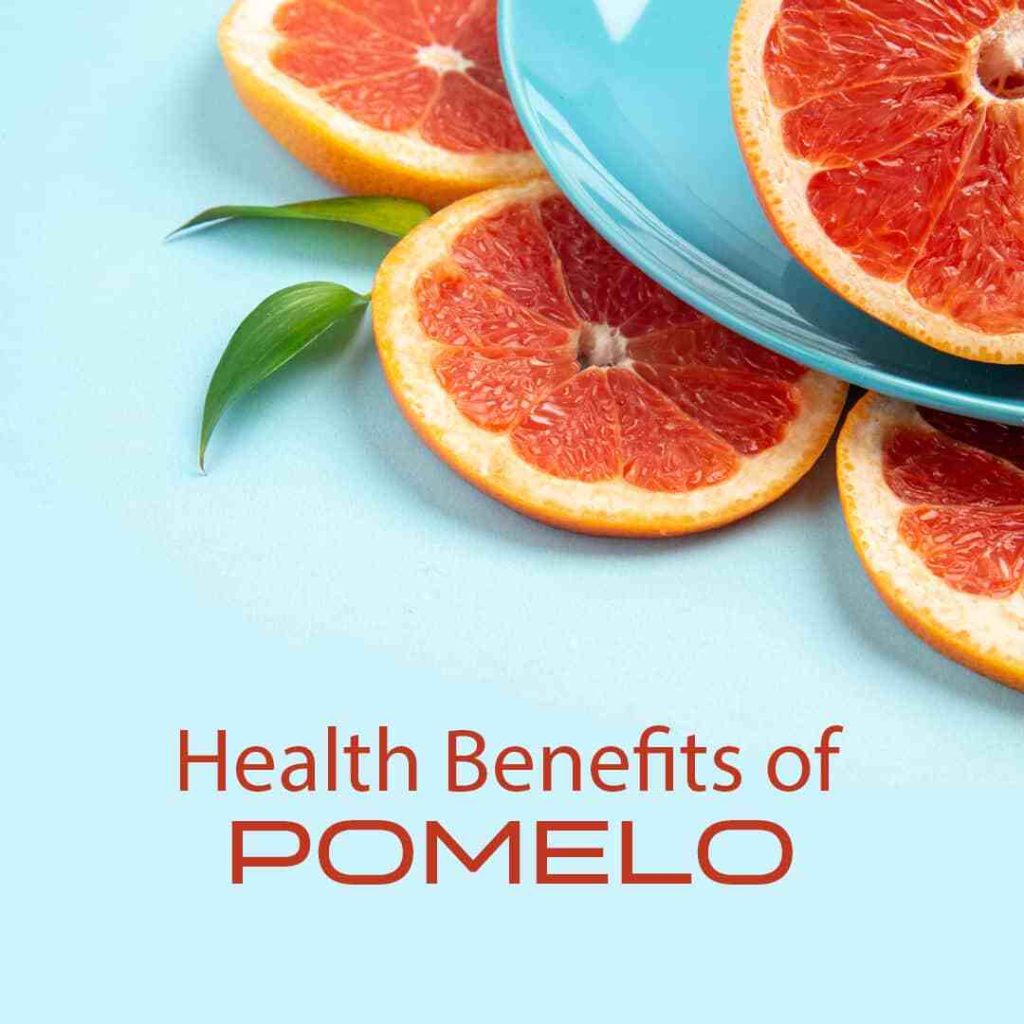Pomelo, the giant citrus fruit often overshadowed by smaller relatives like oranges and grapefruits, packs a punch regarding health benefits. Incorporating pomelo into your diet can bring about many health improvements, from boosting your immune system to promoting heart health. Let’s dive into why you should consider adding this vibrant fruit to your daily routine.
What is Pomelo?
Pomelo, or Citrus maxima, is the largest fruit in the citrus family. This fruit, originating from Southeast Asia, is distinguished by its thick rind and sweet, tangy flesh. It is presented in various shades of green and yellow, with a pulp that varies from white to pink. Pomelo is nutritionally impressive, containing high vitamin C, fiber, and other essential nutrients.
Rich in Vitamin C
Vitamin C is an essential nutrient that our bodies need for tissue growth and repair. It’s also a powerful antioxidant, which means it helps protect cells from damage. Pomelo is a fantastic source of vitamin C, providing more than 100% of your daily requirement in just one serving. This can help improve your skin health, boost your immune system, and even enhance the absorption of iron from plant-based foods.
Boosts Immune System
Speaking of vitamin C, one of the primary benefits of pomelo is its ability to enhance your immune system. Vitamin C stimulates the production of white blood cells, vital for fighting off infections. Regular consumption of pomelo can help keep common colds and other illnesses at bay, ensuring you stay healthy throughout the year.
Aids Digestion
“Consider adding pomelo to your diet to improve digestive health. It’s rich in fiber, which supports regular bowel movements and promotes healthy gut bacteria.”
Supports Heart Health
Eating pomelo can support heart health by reducing cholesterol levels, preventing arterial plaque buildup, and helping to manage blood pressure due to its antioxidants, anti-inflammatory properties, and high potassium content.
Promotes Weight Loss
For those looking to shed a few pounds, pomelo is an excellent addition to a weight-loss diet. It’s low in calories but high in fiber, which can help you feel complete for extended periods. The high water content in pomelo also aids in hydration, essential for maintaining a healthy metabolism.
Antioxidant Properties
Pomelo is loaded with antioxidants, which help neutralize harmful free radicals in the body. These free radicals can cause leading to chronic diseases and aging. By consuming pomelo, you provide your body with a rich supply of antioxidants, helping to protect your cells and reduce the risk of various health issues.
Skin Health
Eating pomelo is excellent for your skin because its high vitamin C content helps produce collagen, maintaining skin elasticity and firmness. In contrast, the antioxidants help protect from UV rays and pollution.
Regulates Blood Pressure
Pomelo’s rich potassium content offers significant benefits, especially for individuals with high blood pressure. Potassium, a mineral that helps regulate sodium levels in the body, relaxes tension in the blood vessel walls, and lowers blood pressure. This can notably decrease the likelihood of strokes and heart attacks.
Anti-Aging Benefits
Pomelo may be a key ally in slowing down the aging process. The amalgamation of antioxidants, vitamins, and minerals in pomelo collaborates to combat signs of aging. By diminishing oxidative stress and promoting skin health, pomelo can assist in preserving a more youthful appearance for longer.
Anti-Inflammatory Effects
Chronic inflammation is linked to various diseases, such as arthritis, diabetes, and heart disease. Pomelo contains bioflavonoids and other anti-inflammatory compounds, which may help lower inflammation. This, in turn, could alleviate symptoms of inflammatory conditions and contribute to better overall health.
Bone Health
Maintaining strong bones is essential as we age, and pomelo can play a role in bone health. It’s rich in calcium and potassium, crucial for bone density and strength. Regular consumption of pomelo can help prevent bone-related conditions like osteoporosis, keeping your bones healthy and strong.
Improves Hydration
Staying hydrated is vital for all bodily functions, and pomelo, with its high water content, can help with that. Proper hydration supports everything from digestion to joint lubrication to skin health. Including pomelo in your diet can contribute to your daily fluid intake, ensuring your body stays hydrated and functions optimally.
Conclusion
Pomelo is more than just a delicious fruit; it’s a powerhouse of nutrients that can offer numerous health benefits. From boosting your immune system to promoting heart health, aiding digestion, and supporting weight loss, pomelo is a versatile fruit that deserves a place in your diet. So next time you’re at the grocery store, don’t overlook this giant citrus—your body will thank you!
FAQs
What is the best way to eat pomelo?
The best way to eat pomelo is to peel off the thick rind, separate the segments, and enjoy the juicy flesh. You can eat it on its own, add it to salads, or use it in desserts.
Can pomelo interact with medications?
Yes, pomelo can interact with certain medications, particularly those metabolized by the liver. If you’re on medication, consult with your doctor before adding pomelo to your diet.
How does pomelo compare to grapefruit?
Pomelo is similar to grapefruit but is generally sweeter and less bitter. It’s also more extensive and has a thicker rind.
Are there any side effects of eating pomelo?
While pomelo is safe for most people, some might experience digestive issues if they consume too much fiber. Additionally, it can interact with certain medications, so it’s best to consult with a healthcare provider.
How often should you eat pomelo for health benefits?
Incorporating pomelo into your diet a few times a week is sufficient for optimal health benefits. It’s a great addition to a balanced diet rich in fruits and vegetables.

